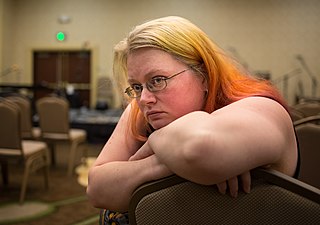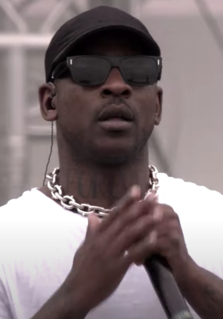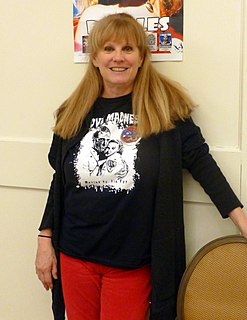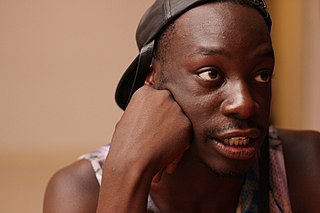A Quote by Mira Grant
We were the ones on scene when everything went down. We weren't better. We weren't worse. We were just the ones standing in the blast radius.
Related Quotes
I was a young feminist in the '70s. Feminism saved my life. It gave me a life. But I saw how so much of what people were saying was not matching up with what they were doing. For example, we were talking about sister solidarity, and women were putting each other down. We were talking about standing up for our rights, and women weren't leaving abusive relationships with men. There were just so many disconnects.
We were terribly excited, and I think we took it on our shoulders that we were creating the 21st century in 1971. That was the idea. And we wanted to just blast everything in the past, rather like the vorticists did at the beginning of the century in the Britain or the dadaists did Europe, you know. It was the same sensibility of everything is rubbish, and all rubbish is wonderful.
For a long time we have thought we were better than the living world, and now some of us tend to think we are worse, that everything we touch turns to soot. But neither perspective is healthy. We have to remember how it feels to have equal standing in the world, to be "between the mountain and the ant . . . part and parcel of creations," as the Iroquois traditionalist Oren Lyons says.
The Ramones were a great bunch of guys. They were very quiet, very shy. They were a little in awe of the filmmaking process, probably because we started at 7 a.m. I do remember the very first day of shooting, I met them and did the scene in the bedroom where Joey sings to me, and they were all scattered around my bedroom in my little fantasy scene. That was the first scene we shot of the movie. That scene is kind of a strange way to start a movie. "Okay, get undressed, and these weird guys in leather jackets and ripped jeans are going to sing to you."
I had invited 50 or 60 peers and friends, most of whom were parents, to see the film [Trust], and I asked about the last scene. It was interesting because it was split right down the middle, 50/50. About half the audience wanted it to end with the very emotional scene between Clive and Liana, and that feeling of realization and catharsis. And, the other half were adamant about keeping that last scene.
The scene at a certain time was definitely boys; those huge warehouses were kind of violent parties, even. I think people in your immediate community made a nightlife scene that actually did break down gender roles and were along different lines of identity that had to do with race and experience in the '90s, rather than gender.
When you shoot a scene, you remember every moment. You remember when your head went down, your head went up. You don't see little quirks, little eye movements, little lip movements. Once again, you become completely vain when you're watching it in a way that you weren't when you were shooting it. And the vanity, what it makes you focus on are everything that has nothing to do with the scene and everything to do with your own ego.



































